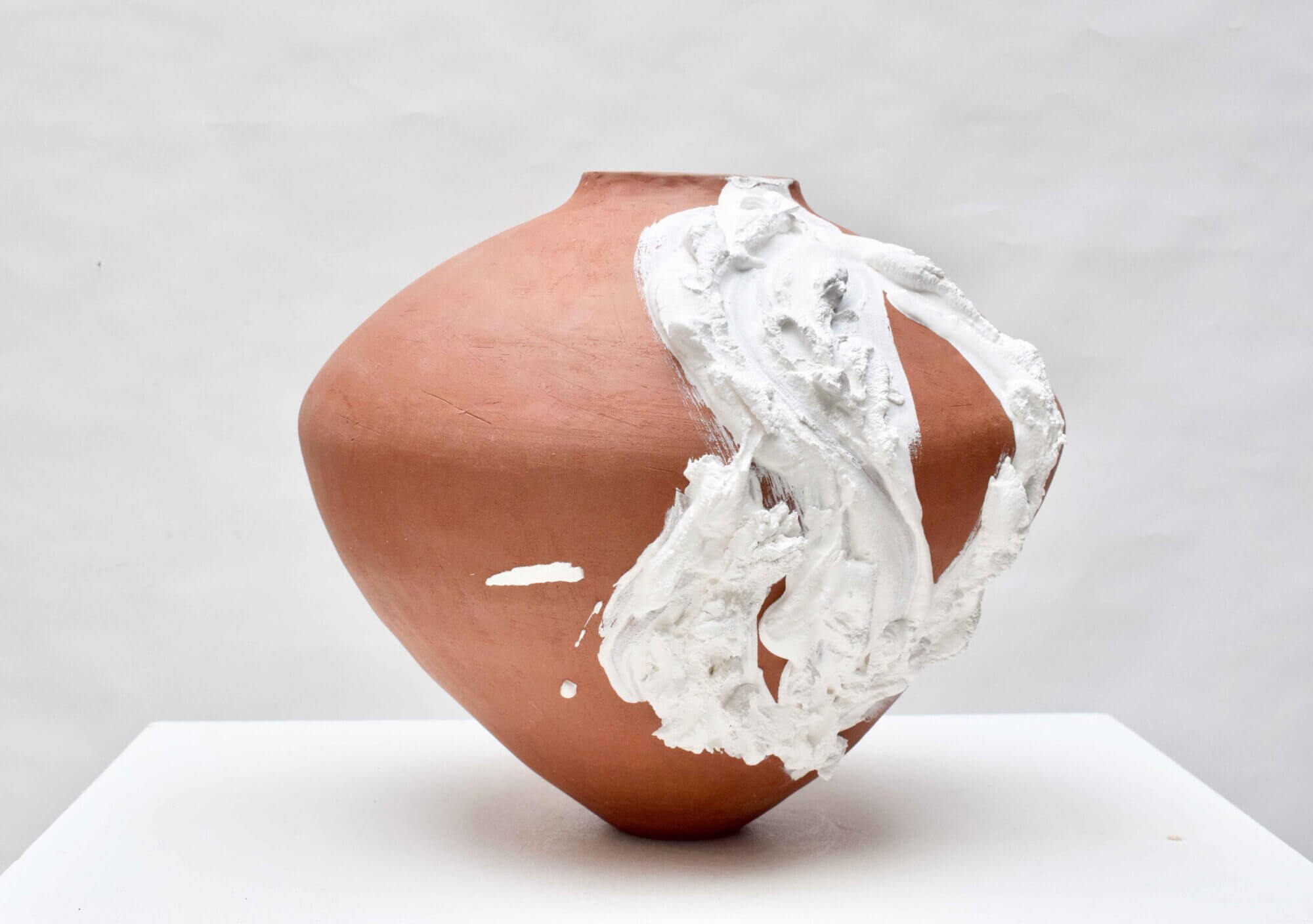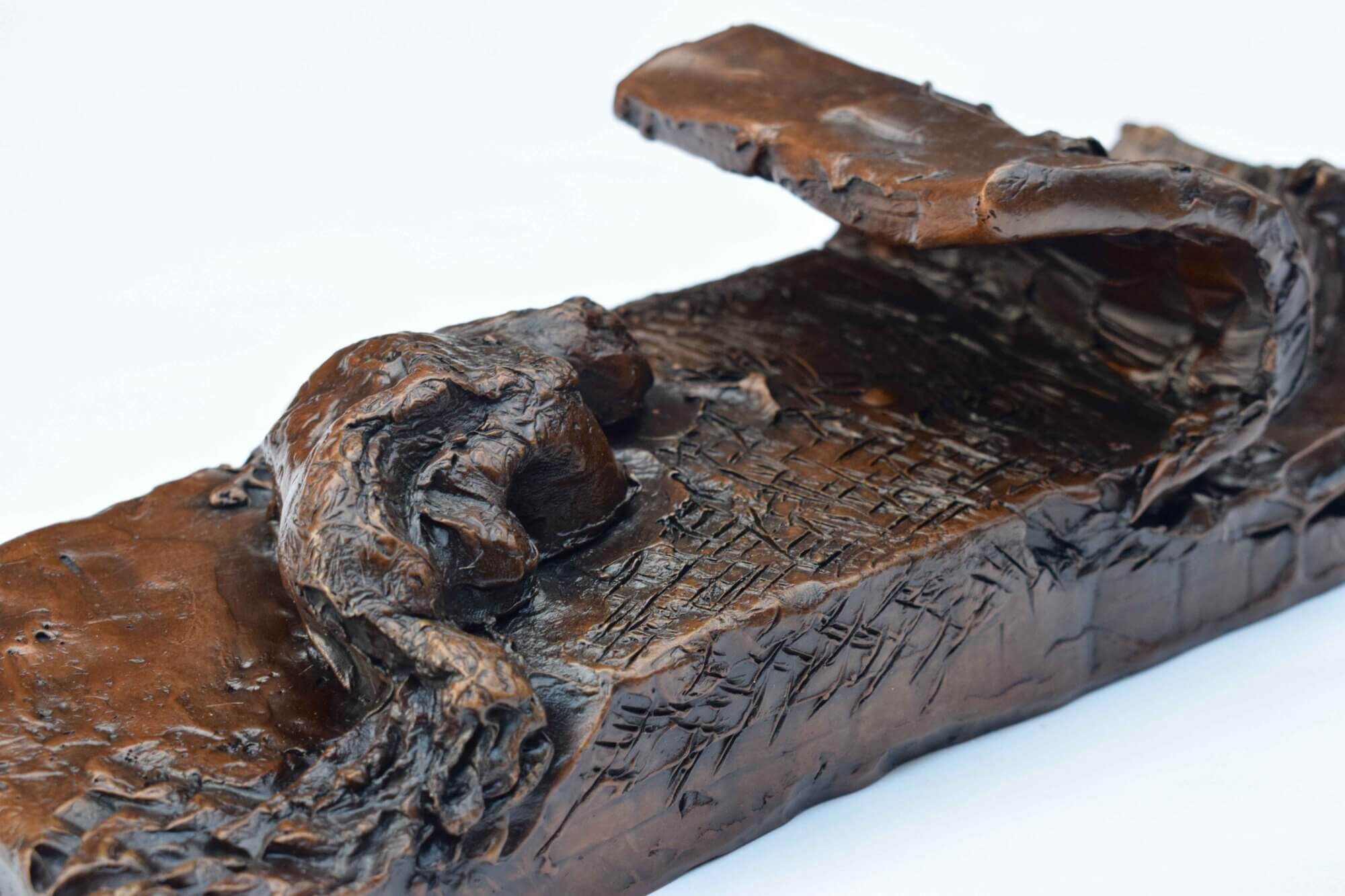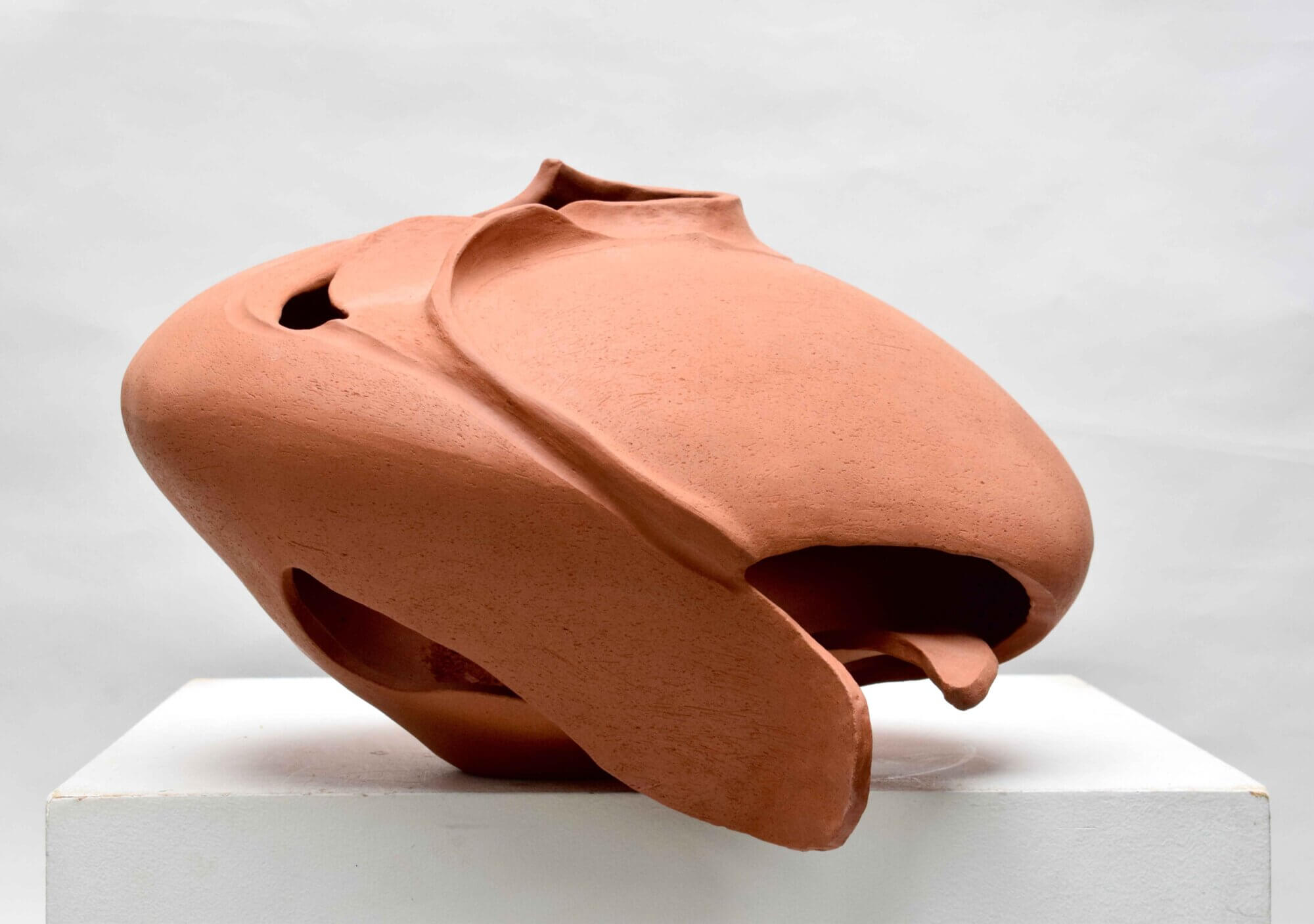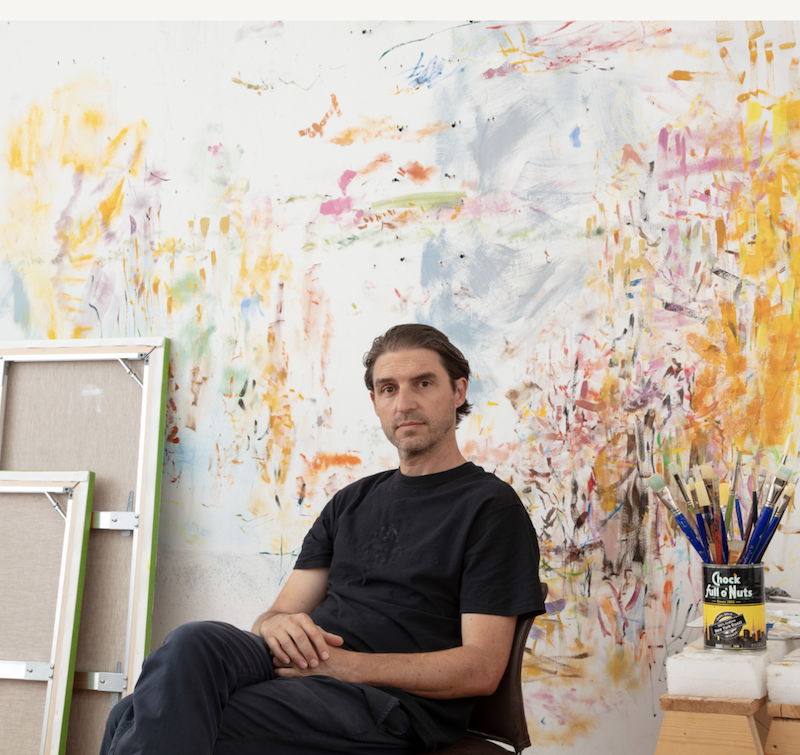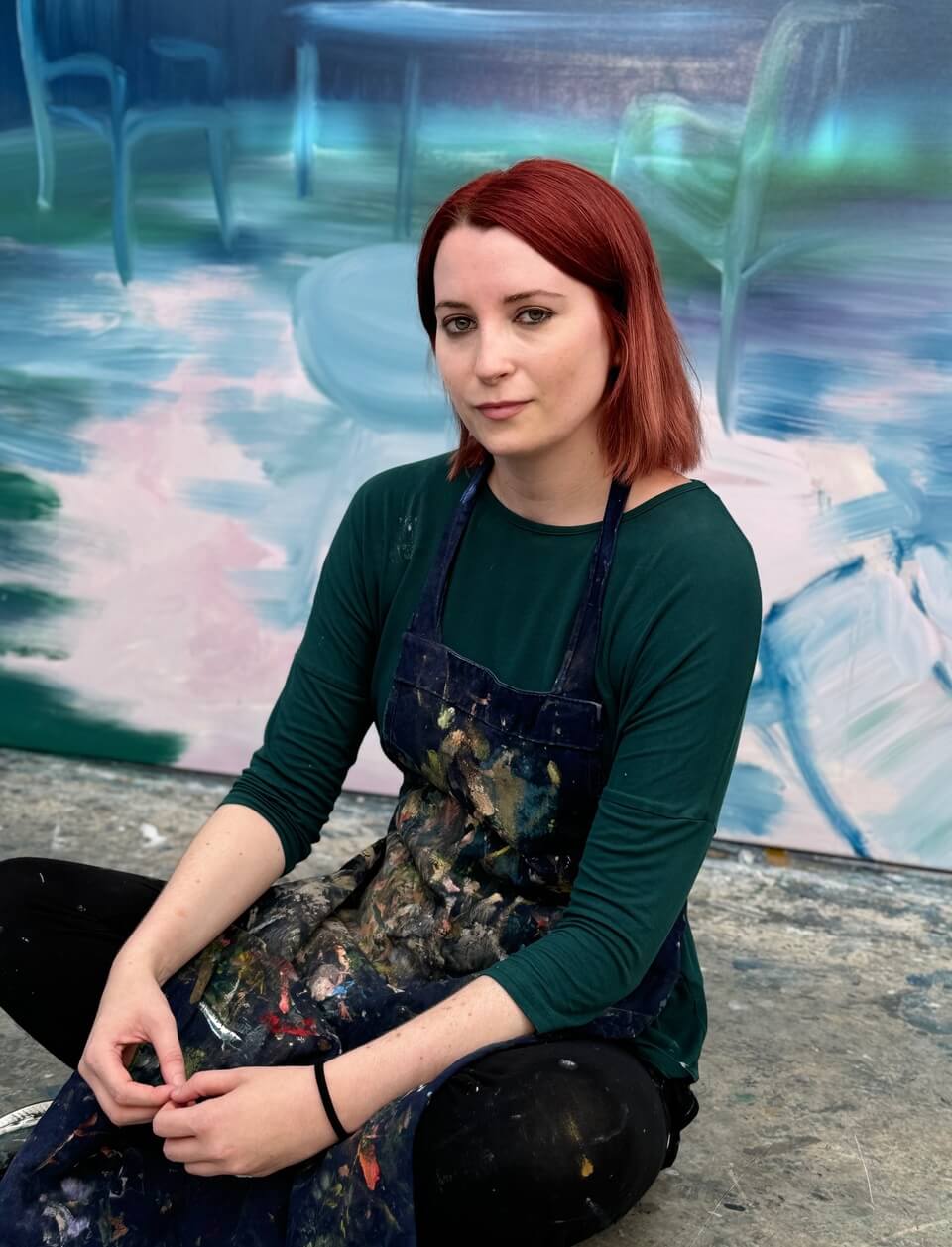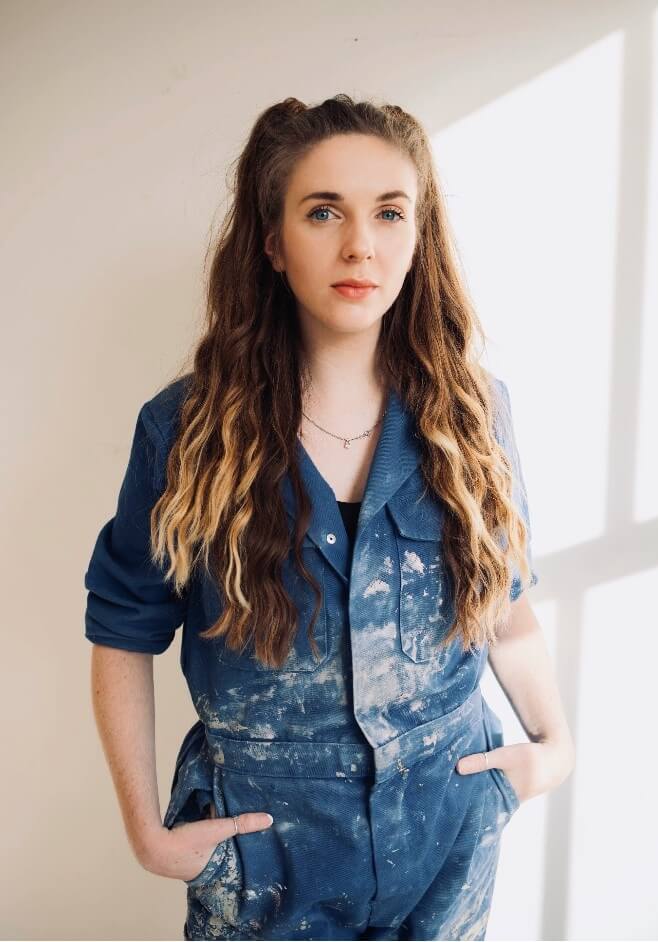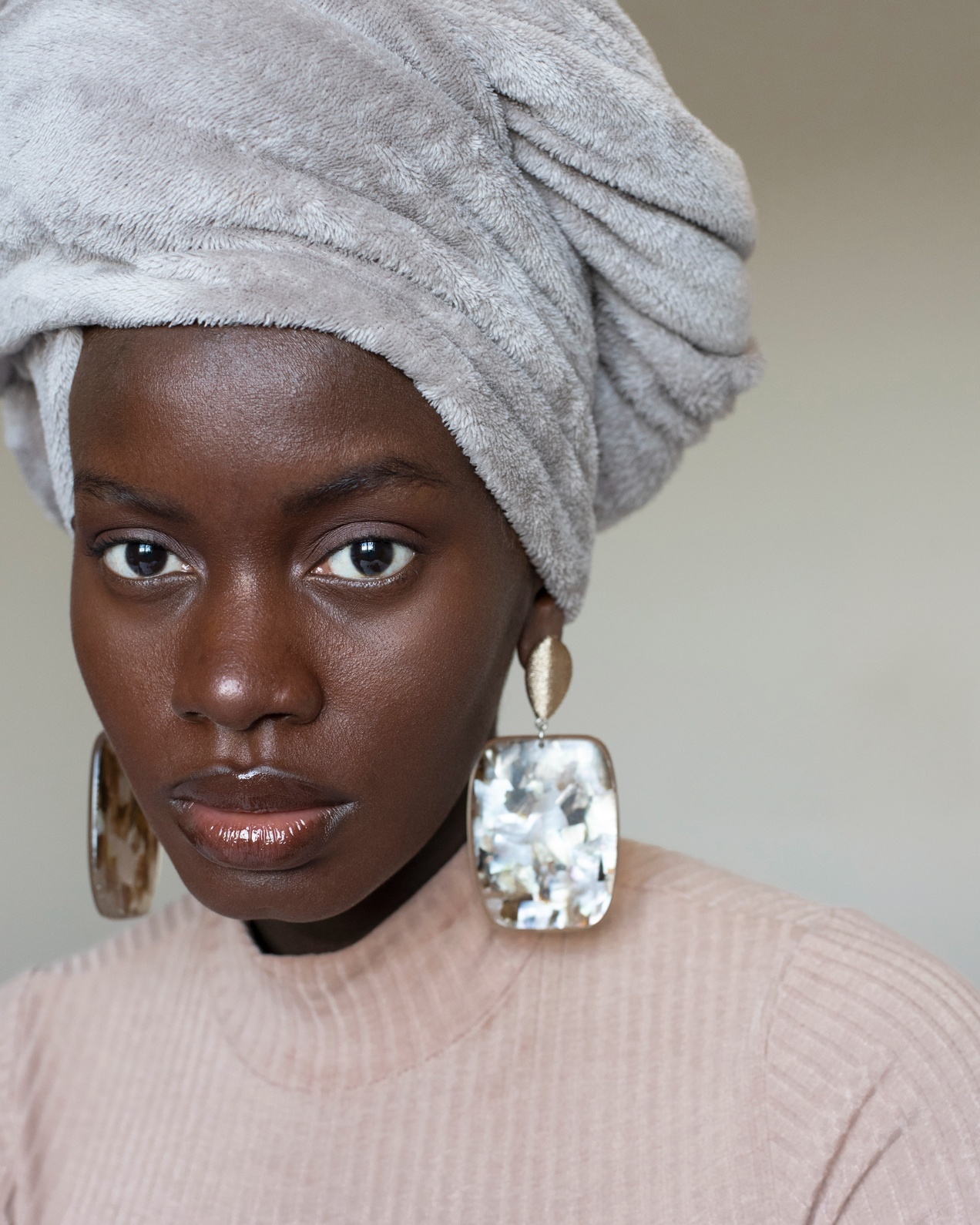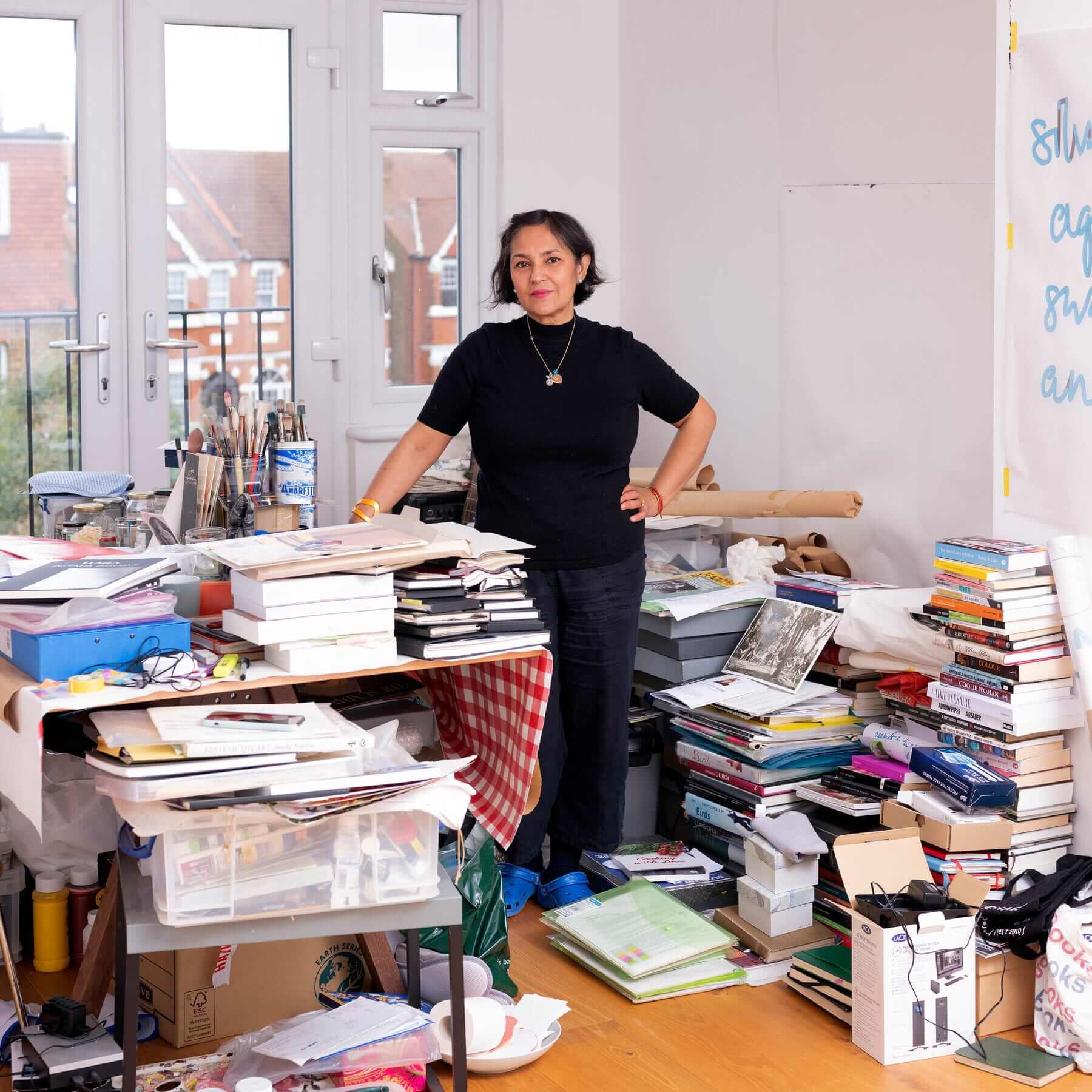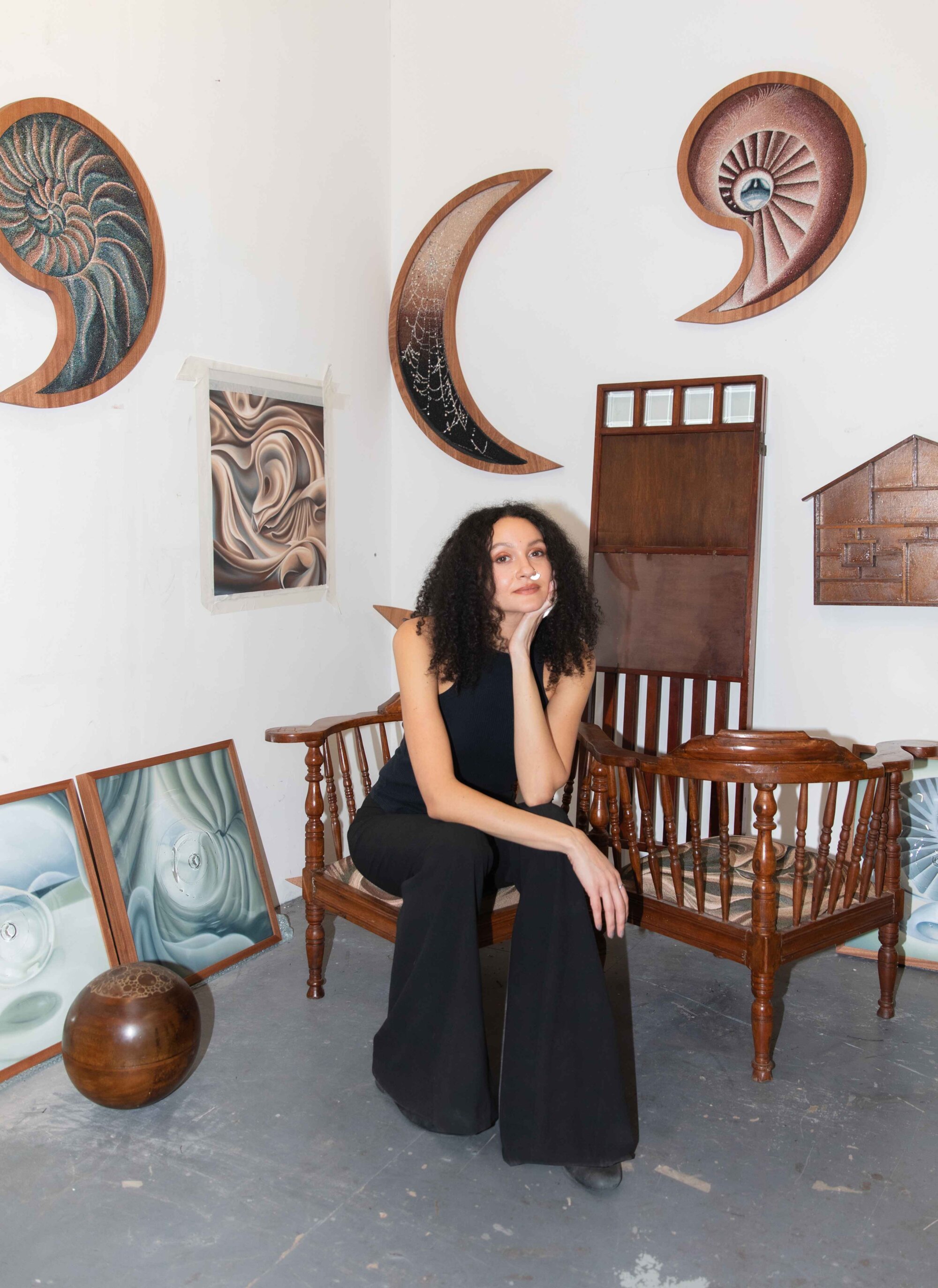Spotlight artist Bisila Noha
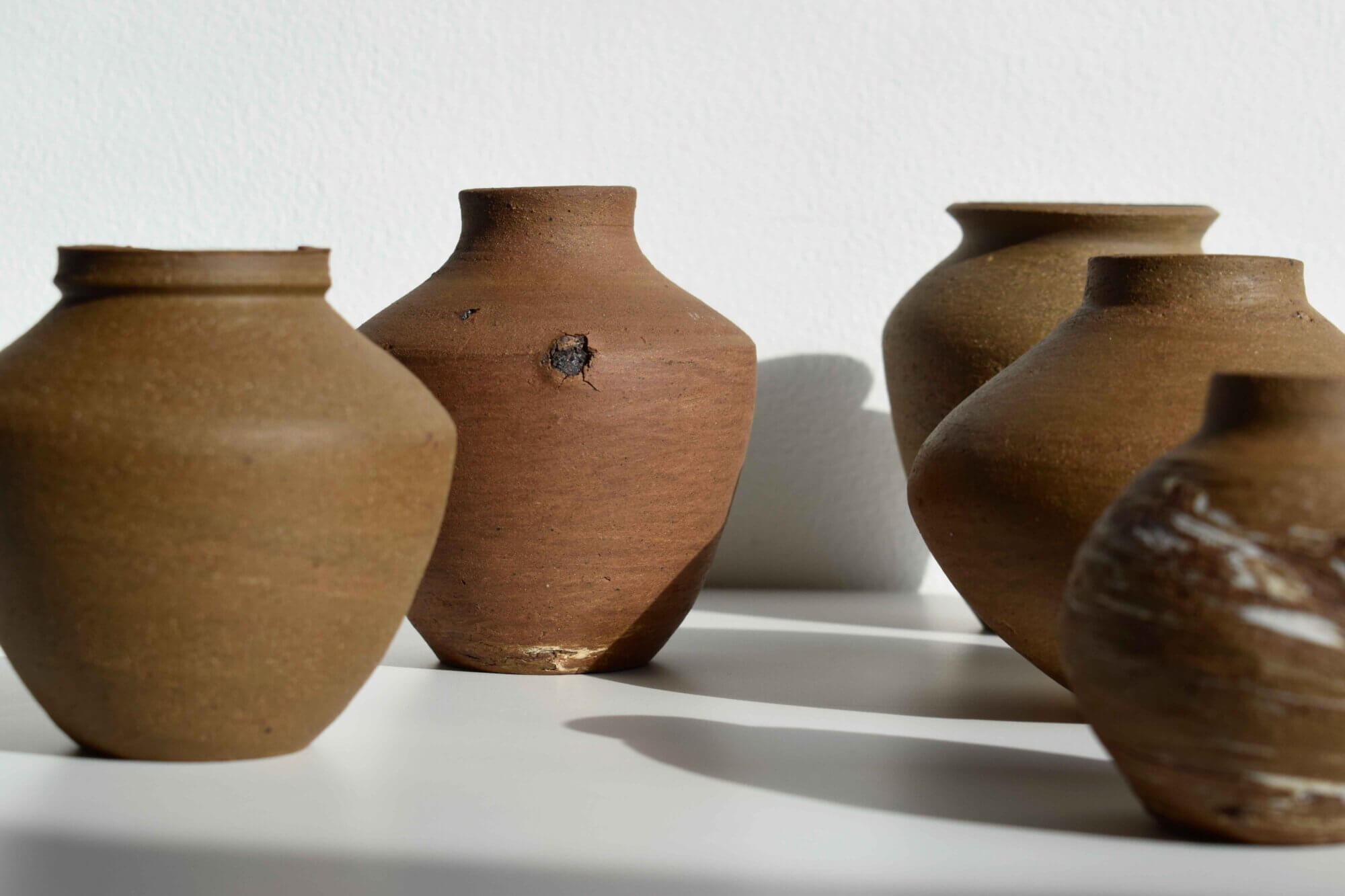
WATCH
WATCH
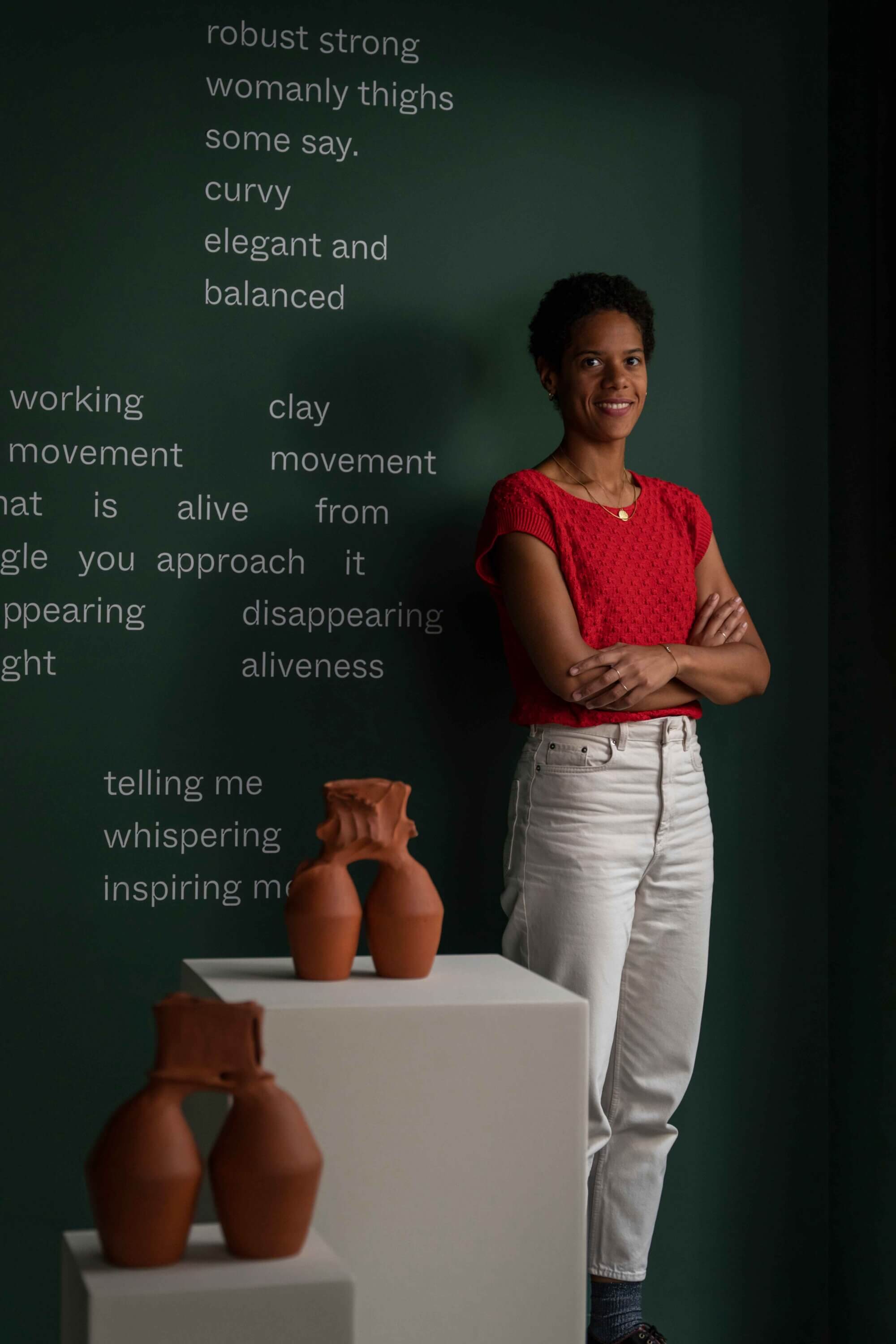
“There’s the political side, as I challenge how women’s labour has been perceived, studied and document throughout history, specially in the case of pottery. There’s the more technical ceramics side to it too – exploring how the clays interact once fired depending on the mixes.” The project also have a personal, emotional aspect “it has been key in my own identity journey, embracing my blackness and my African roots.” While the clay directly represents the artist’s connection to the earth of Equatorial Guinea, the forms and techniques forge a line with her heritage, with the long-practiced traditions of pottery in Equatorial Guinea, and across Central Africa.
Other collections inspired by this body of work that have followed in recent years have been acquired by the V&A Museum amongst many others both in the UK and the USA, and exhibited across Europe. But now the clay has returned there, in two concurrent exhibitions taking place at the Spanish Cultural Centres in the cities of Bata and Malabo. Noha reflects: “being able to exhibit some of these pieces in Equatorial Guinea at the moment feels like a full-circle moment, a huge achievement and an incredible opportunity to connect with the country and its women.”
It is an exciting time ahead for Noha. Next month, she travels to West Africa, first to Dakar to surf, make and explore. Then she will be resident at Yinka Shonibare’s Guest Artists Space (GAS) Foundation before returning to Senegal to participate in a residency programme at Thread, organised by the Joseph and Annie Albers Foundation. Yet of all her cherished moments with her work to date, Noha mentions in particular “all the connections I have made with people — specially women of colour — through my work in the past years.” The power of her vessels lies in their ability to activate conversations, and to join communities across continents, beyond the borders of countries or bodies.
About the champion
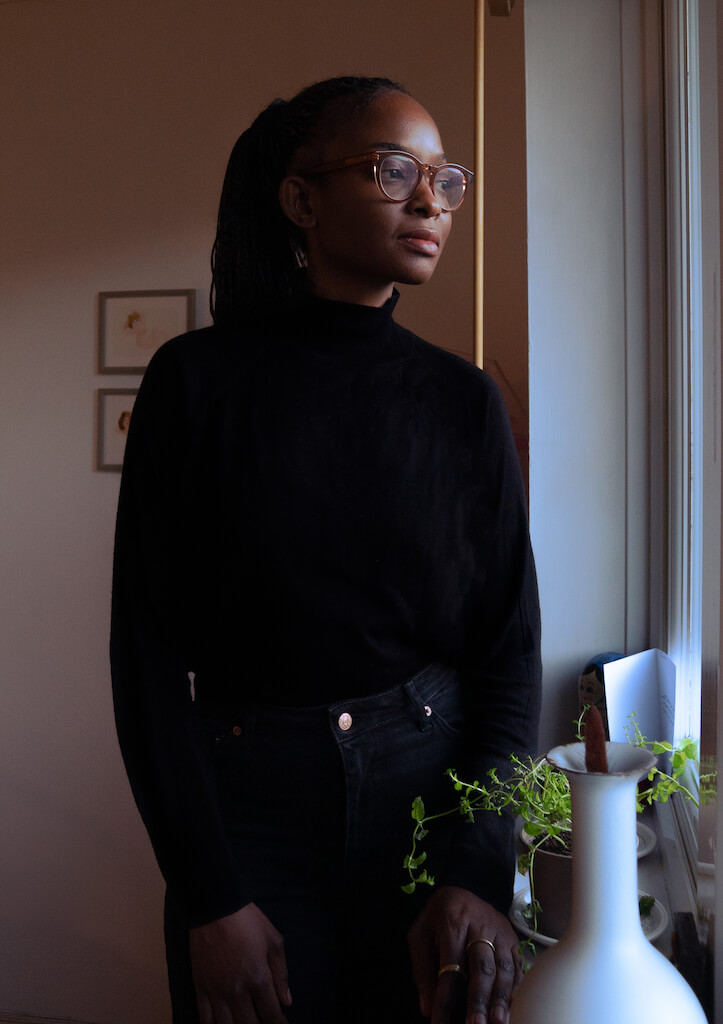
Dr. Jareh Das is an independent curator, scholar and occasional florist focusing on performance art. She holds a Curating Art and Science doctorate from Royal Holloway, University of London. She has curated projects such as “Body Vessel Clay: Black Women, Ceramics and Contemporary Art,” which explores underrepresented ceramics narratives, particularly those of Black women artists. Das’s work spans various disciplines and contributes significantly to a broader understanding of contemporary art practices. She has received awards, including British Academy / Leverhulme Trust Small Research Grants (2023), Paul Mellon Centre inaugural New Narratives awards scheme (2022) and AHRC Collaborative Doctoral Award: Curating Art and Science: New Methods and Sites of Production and Display (2013-2016). She is currently working on her first book-length publication.
“Noha’s explorations of clay, identity, and its transformative and connective qualities are reflected in the ceramics, bronze, and plaster forms she creates.”
Dr Jareh Das
